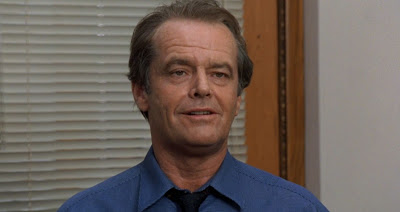 |
| Kenneth Branagh as Hercule Poirot |
MURDER ON THE ORIENT EXPRESS (2017).
Traveling on the Orient Express in 1934, famous detective Hercule Poirot (Kenneth Branagh) learns that a man has been murdered and is asked to investigate by his old friend Bouc (Tom Bateman), a representative of the train line. As Poirot interviews the other passengers, he slowly discovers that many of them had some connection to the victim, a man named Rachet, who was really the notorious kidnapper, Casetti (Johnny Depp). As Poirot discovers the many secrets of the numerous suspects, he finds himself with a moral dilemma. I was a bit taken aback when I first heard of this film, but I must say that I was pleasantly surprised when I finally saw it. Although he may not be quite as convincing as David Suchet or Albert Finney in the
first version, Branagh is much better as the Belgian detective than anticipated. Unlike Christie's creation -- and for better or worse -- Branagh makes a more "virile" Poirot, and has him mooning over the photograph of a lost love as if to prove his heterosexuality (Poirot was never gay in any case). The movie is also superior to the 1974 version, with better performances from the supporting cast and a more serious tone. Michael Green's screenplay intelligently "opens up" the film in small ways, and the plot doesn't seem
quite so far-fetched. Depp is excellent as the racketeer, and there are also notable turns from Michelle Pfieffer as Mrs. Hubbard (she is much better than Lauren Bacall in the original); Derek Jacobi as a nervous manservant; Willem Dafoe as a Pinkerton detective; and Judi Dench as the formidable Princess Dragomiroff. Of the younger players, Josh Gad makes an impression as McQueen, the dead man's secretary, as do Daisy Ridley [
Star Wars Part VII] as Mary Debenham and Leslie Odom Jr. as Dr. Arbuthnot. Arbuthnot was not a black character in Christie's novel -- this film is generally faithful to it -- but that does not present a problem, except that at one point the positively drawn character seems to become quite negative. Patrick Doyle's [
Thor] score lacks the suspense and tension that a mystery requires, but in the final quarter it does add some depth and somberness to the proceedings. "Never Forget," which we hear over the closing credits, is a pretty song that is very nicely warbled by Michell Pfeiffer, who proved she could sing long ago in
Grease 2.
Agatha Christie was still alive when the
first version of this story came out. While she admired Finney, she did not admire his mustache, which was nowhere near as "magnificent" (at least in Poirot's opinion) as it was supposed to be. Love it or hate it, Branagh's mustache would probably have pleased Christie. This movie was absolutely hated by many people -- who thought they fiddled unnecessarily with a "masterpiece" -- but as much as I love Christie's work, I don't consider the novel to be a "masterpiece" nor the first film version, either.
Verdict: Unevenly directed perhaps, but still the best version of this venerable old story. Makes me look forward to Branagh's version of
Death on the Nile. ***.







